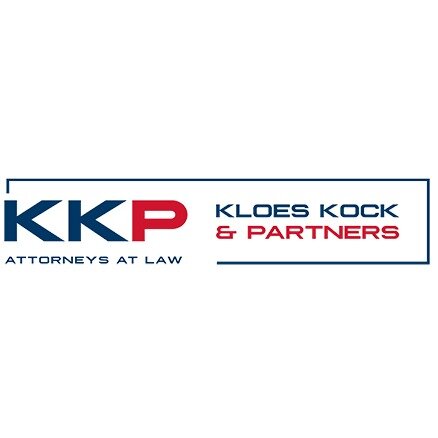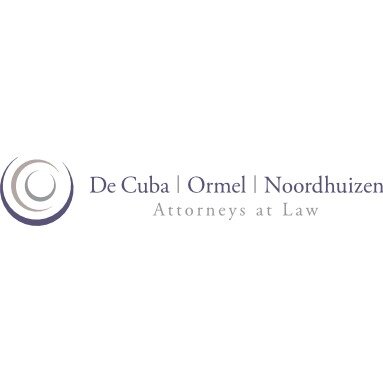Best Business Lawyers in Aruba
Share your needs with us, get contacted by law firms.
Free. Takes 2 min.
Or refine your search by selecting a city:
List of the best lawyers in Aruba
About Business Law in Aruba:
Business in Aruba is governed by a combination of local laws and regulations. These laws are designed to support and regulate the various types of businesses operating on the island. From small businesses to larger corporations, understanding the legal framework can help business owners operate within the law and protect their interests.
Why You May Need a Lawyer:
There are several situations where you may need to seek legal advice in the field of business in Aruba. This includes setting up a new business, drafting contracts, resolving disputes with employees or partners, dealing with regulatory issues, and more. A business lawyer can provide valuable assistance in navigating the complex legal landscape and ensuring that your rights are protected.
Local Laws Overview:
Key aspects of local laws that are particularly relevant to business in Aruba include contract law, employment law, tax law, and corporate governance. These laws dictate how businesses must operate, pay taxes, and comply with regulations. It is important for business owners to be aware of these laws to avoid legal problems and ensure the smooth operation of their business.
Frequently Asked Questions:
1. How do I register a business in Aruba?
In order to register a business in Aruba, you will need to apply for a business license with the Chamber of Commerce. You will also need to register your business with the Tax Department and meet any other requirements specific to your industry.
2. What are the tax implications for business owners in Aruba?
Business owners in Aruba are subject to various taxes, including income tax, turnover tax, and wage tax. It is important to understand your tax obligations and ensure that you are compliant with the law.
3. How can I protect my intellectual property in Aruba?
You can protect your intellectual property in Aruba by registering your trademarks, patents, and copyrights with the Bureau for Intellectual Property. This will give you exclusive rights to your creations and help prevent others from using them without permission.
4. What are the labor laws in Aruba?
Labor laws in Aruba govern issues such as minimum wage, working hours, holidays, and termination of employment. It is important for business owners to comply with these laws to avoid legal problems and ensure fair treatment of employees.
5. How can I resolve a business dispute in Aruba?
Business disputes in Aruba can be resolved through negotiation, mediation, or litigation. It is advisable to consult with a business lawyer to determine the best course of action based on your specific situation.
6. What are the regulations for importing and exporting goods in Aruba?
Importing and exporting goods in Aruba are subject to customs regulations, tariffs, and other requirements. It is important to understand these regulations and comply with them to avoid penalties and delays in your business operations.
7. How can I ensure compliance with environmental regulations in Aruba?
Businesses in Aruba are subject to environmental regulations that govern issues such as waste disposal, pollution control, and conservation of natural resources. It is important to comply with these regulations to protect the environment and avoid legal problems.
8. What are the requirements for corporate governance in Aruba?
Corporate governance in Aruba is regulated by laws that govern the structure and behavior of corporate entities. It is important for business owners to adhere to these requirements to ensure transparency, accountability, and ethical business practices.
9. How can I protect my assets in the event of bankruptcy?
Assets in the event of bankruptcy can be protected by creating a legal entity such as a limited liability company (LLC) or by securing assets with liens or other forms of collateral. It is important to consult with a business lawyer to determine the best asset protection strategy for your business.
10. How can I ensure compliance with anti-money laundering laws in Aruba?
Businesses in Aruba are subject to anti-money laundering laws that require them to implement procedures to prevent money laundering and terrorist financing. It is important to have controls in place to detect and report suspicious activities to the relevant authorities.
Additional Resources:
For more information on business law in Aruba, you can contact the Aruba Chamber of Commerce, the Tax Department, and the Bureau for Intellectual Property. These organizations can provide valuable guidance and resources to help you navigate the legal landscape.
Next Steps:
If you require legal assistance in the field of business in Aruba, it is advisable to consult with a business lawyer who specializes in this area. A lawyer can provide valuable advice and representation to help you protect your interests and navigate the legal challenges that may arise in the course of your business operations.
Lawzana helps you find the best lawyers and law firms in Aruba through a curated and pre-screened list of qualified legal professionals. Our platform offers rankings and detailed profiles of attorneys and law firms, allowing you to compare based on practice areas, including Business, experience, and client feedback.
Each profile includes a description of the firm's areas of practice, client reviews, team members and partners, year of establishment, spoken languages, office locations, contact information, social media presence, and any published articles or resources. Most firms on our platform speak English and are experienced in both local and international legal matters.
Get a quote from top-rated law firms in Aruba — quickly, securely, and without unnecessary hassle.
Disclaimer:
The information provided on this page is for general informational purposes only and does not constitute legal advice. While we strive to ensure the accuracy and relevance of the content, legal information may change over time, and interpretations of the law can vary. You should always consult with a qualified legal professional for advice specific to your situation.
We disclaim all liability for actions taken or not taken based on the content of this page. If you believe any information is incorrect or outdated, please contact us, and we will review and update it where appropriate.
Browse business law firms by service in Aruba
Aruba Attorneys in related practice areas.
Browse business law firms by city in Aruba
Refine your search by selecting a city.











